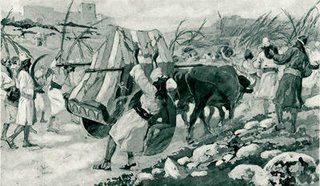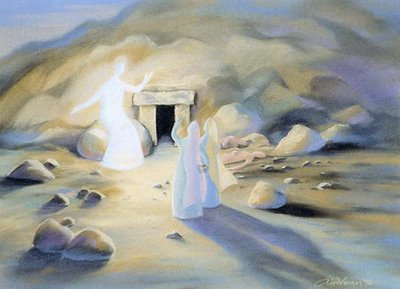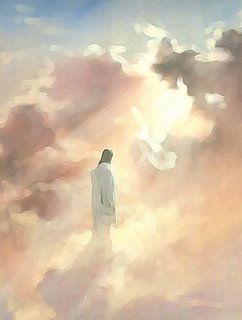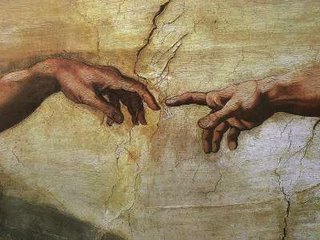No doubt the prisons of that day were unlike those of our modern penal institutions. I think of the prison Bunyan endured and see darkness, dampness, drudgery and brutality. All that was required for his release was for him to vow never to preach again. To do this would mean freedom from the dank pit he lived in and from the burden of knowing his family was left to provide for their own means without him. He would not. He could not.
After his release “he looked back over the hardships of the last 12 years and wrote about how he was enabled by God to survive and even flourish in the Bedford jail…He quotes 2 Corinthians 1:9 where Paul says, We had this sentence of death in ourselves, that we should not trust in ourselves, but in God that raiseth the dead. Then he says, ‘By this scripture I was made to see that if ever I would suffer rightly, I must first pass a sentence of death upon every thing that can be properly called a thing of this life, even to reckon myself, my wife, my children, my health, my enjoyment, and all, as dead to me, and myself as dead to them. The second was, to live upon God that is invisible, as Paul said in another place; the way not to faint, is to ‘look not at the things which are seen, but at the things which are not seen; for the things which are seen are temporal, but the things which are not seen are eternal.’” (John Piper)
Piper goes on to say “In all my reading of Bunyan, what has gripped me most is his suffering and how he responded to it. What it made of him. And what it might make of us. All of us come to our tasks with a history and many predispositions. I come to John Bunyan with a growing sense that suffering is a normal and useful and essential and God-ordained element in Christian life and ministry. Not only for the sake of weaning us off the world and teaching us to live on God…”
I can’t hear a story like that of the life of John Bunyan or an insight like that shared by Piper above and not feel challenged within myself as to the degree of love I have for myself and the world. A couple of weeks ago, one of my pastors gave a message on loving and doing the gospel mission. He spoke out of Romans 16, which is an often overlooked passage where Paul lists workers in the church and notes their service. These people were highlighted for everything from the menial to the sacrificial. One set were even commended for “risking their necks” to save Paul’s life. As I listened, I heard…”If you save your face you won’t risk your life.”
It reminded me of the verse that says if you seek to save your life, you will lose it and what is “face saving” but an attempt to preserve your life as you see it? To do this is to live to self, not to Christ, and ultimately, there is no gain in that.
The fact of the matter is, as Christians, we are called to suffer. When we chose Christ as our Savior, we were drafted into service and enlisted as soldiers in a battle that has been waging since the dawn of time itself. The trouble is, we have become so refined (not in a Bunyan way), so deceived by ease (plentiful jobs, less sickness and death, the form of tolerance in America regarding faith) that we have lost sight of the reality of our call and the war we are meant to take an active part in. Modern Christianity has become some form of self-improvement…it is man-centered, generally…and thus there is no warfare mentality, no willingness to suffer and sacrifice, and no real power.
I believe scripture bears this out: the greater the suffering, the greater the saint. Through suffering the Lord gave us Job, Peter, John, Paul, my dear Amy Carmichael and Elisabeth Elliot, John Bunyan, Martin Luther, William Wilberforce, David Brainerd…and countless others. They, none of them, would be what they were in Christ were it not for strategic suffering placed by a good and sovereign God. Bunyan knew this, and wrote the following while he was in prison: "I have, in a few words, handled this . . . to show you that our sufferings are ordered and disposed by him, that you might always, when you come into trouble for this name, not stagger nor be at loss, but be stayed, composed, and settled in your minds, and say, 'The will of the Lord be done.' Act 21:14."
Through these examples of suffering faith, we can see that “[t]here is more of God to be had in times of suffering than any other time.” (John Piper) Bunyan also realized this truth, and wrote: "Let me beg of thee, that thou wilt not be offended either with God, or men, if the cross is laid heavy upon thee. Not with God, for he doth nothing without a cause, nor with men, for . . . they are the servants of God to thee for good. (Psalm 17:14 KJV; Jer. 24:5). Take therefore what comes to thee from God by them, thankfully." Indeed Piper says, “[p]rison proved for Bunyan to be a hallowed place of communion with God because his suffering unlocked the Word and the deepest fellowship with Christ he had ever known.”
They are the servants of God to thee for good...
Piper goes on to say: "In The Excellency of a Broken Heart (the last book he took to the publisher) he says, ‘Conversion is not the smooth, easy-going process some men seem to think . . . . It is wounding work, of course, this breaking of the hearts, but without wounding there is no saving. . . . Where there is grafting there is a cutting, the scion must be let in with a wound; to stick it on to the outside or to tie it on with a string would be of no use. Heart must be set to heart and back to back, or there will be no sap from root to branch, and this I say, must be done by a wound.’ Bunyan's suffering made him passionate about these things – and patient. You can hear his empathy with strugglers in these typically earthy words in a book from 1678 called Come and Welcome to Jesus Christ: 'He that comes to Christ cannot, it is true, always get on as fast as he would. Poor coming soul, thou art like the man that would ride full gallop whose horse will hardly trot. Now the desire of his mind is not to be judged of by the slow pace of the dull jade he rides on, but by the hitching and kicking and spurring as he sits on his back. Thy flesh is like this dull jade, it will not gallop after Christ, it will be backward though thy soul and heaven lie at stake’ … Bunyan's sufferings had taught him the word's of Jesus first hand, The way is hard, that leads to life, and those who find it are few (Matt. 7:14).”
As I listened to these messages, I thought of this Amy Carmichael poem:
NO SCAR?
Hast thou no scar?
No hidden scar on foot, or side, or hand?
I hear thee sung as mighty in the land;
I hear them hail thy bright, ascendant star.
Hast thou no scar?
Hast thou no wound?
Yet I was wounded by the archers; spent,
Leaned Me against a tree to die; and rent
By ravening beasts that compassed Me, I swooned.
Hast thou no wound?
No wound? No scar?
Yet, as the Master shall the servant be,
And piercèd are the feet that follow Me.
But thine are whole; can he have followed far
Who hast no wound or scar?
He was wounded for our transgressions…and so must we be wounded…crucified with Him…willing to die daily. Without it we will never really know Him…and run the risk of hearing “I never knew ye” on that day.
 My nieces and I like to sing in the car. Their favorite songs are those we can make up hand motions to. This particular day, we were singing "Ain't no rock". It goes something like this:
My nieces and I like to sing in the car. Their favorite songs are those we can make up hand motions to. This particular day, we were singing "Ain't no rock". It goes something like this:




















